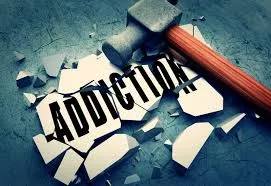The addicted brain is chemically and physiologically poles apart from a normal brain; it has been clearly demonstrated by drug and alcohol addiction research. The indication of addiction being a neurological disorder is life-threatening when it comes to understanding its development and the recovery process.
In the end, a person can actually stop the addiction cycle and enter a healthier lifestyle called recovery. It may take a long process that may lead someone who’s recovering to the right path. An addicted person may understand the cycle of addiction but will remain unable to break the repetition of the cycle until they develop the intuition to seek help.
There are several ways those can help someone to recover on their addiction, religious organization, self-help group or simply developing a better way of life. However, the vast majority of them require outside help from counselors, physicians and drug and alcohol rehabs.
Addiction is defined as obsessive thinking and compulsive need for drugs, alcohol, food, sex or anything despite causing negative impacts. It develops over time and usually begins with misuse, moving toward abuse and resulting in addiction.
Misuse
To lessen emotional or physical pain, a person may try to escape it with drugs or alcohol. Otherwise, one may use drugs or alcohol in a social setting, and decide to try them again just to have fun. Relieved of feelings of anxiety, the person will continue to use drugs or alcohol a second time, a third time and so on.
Abuse
Soon the person increases use to uphold the desired effects of excitement and escape from certainty. The original problems are left unattended and/or unresolved. Furthermore, If the person didn’t have problems at the beginning of use, problems have now been formed as a result of the use. Continuous attempts to placate the body’s cravings for drugs or alcohol become the person’s new reality.
Addiction
Great time and determination are spent obtaining alcohol or drugs. After the addicted person or alcoholic is completely embedded in the cycle of addiction, the health, financial, social and emotional significance appear. The addicted person may just feel that they have been wretched or blame the consequences on others as an alternative to their addiction.
The Cycle of Addiction Is Characterized By:
- Frustration and internal pain that leads to anxiety and a demand for relief of these symptoms
- Fantasizing about using alcohol and drugs or behaviors to relieve the uncomfortable symptoms
- Obsessing about using drugs and alcohol and how his or her life will be after the use of substances
- Engaging in the addictive activity, such as using substances to gain relief (acting out)
- Losing control over the behavior
- Developing feelings of remorse, guilt, and shame, which lead to feelings of dissatisfaction
- Making a promise or resolve to oneself to stop the behavior or substance use
In addition, substance abuse treatment programs can help break the cycle of addiction some of them focus mainly on spiritual talk therapy but without tackling the diseases underlying physiology. Quality addiction treatment programs concentrate on modifying the neurological imbalances caused by substance dependence. Psychosocial counseling, addiction education, and a variety of treatments, counseling, relapse avoidance, and aftercare plans allow the patient with the tools to stay on the road to recovery.
Again Mid Cities Psychiatry may refer to the inpatient facility best suited for the patient……..

